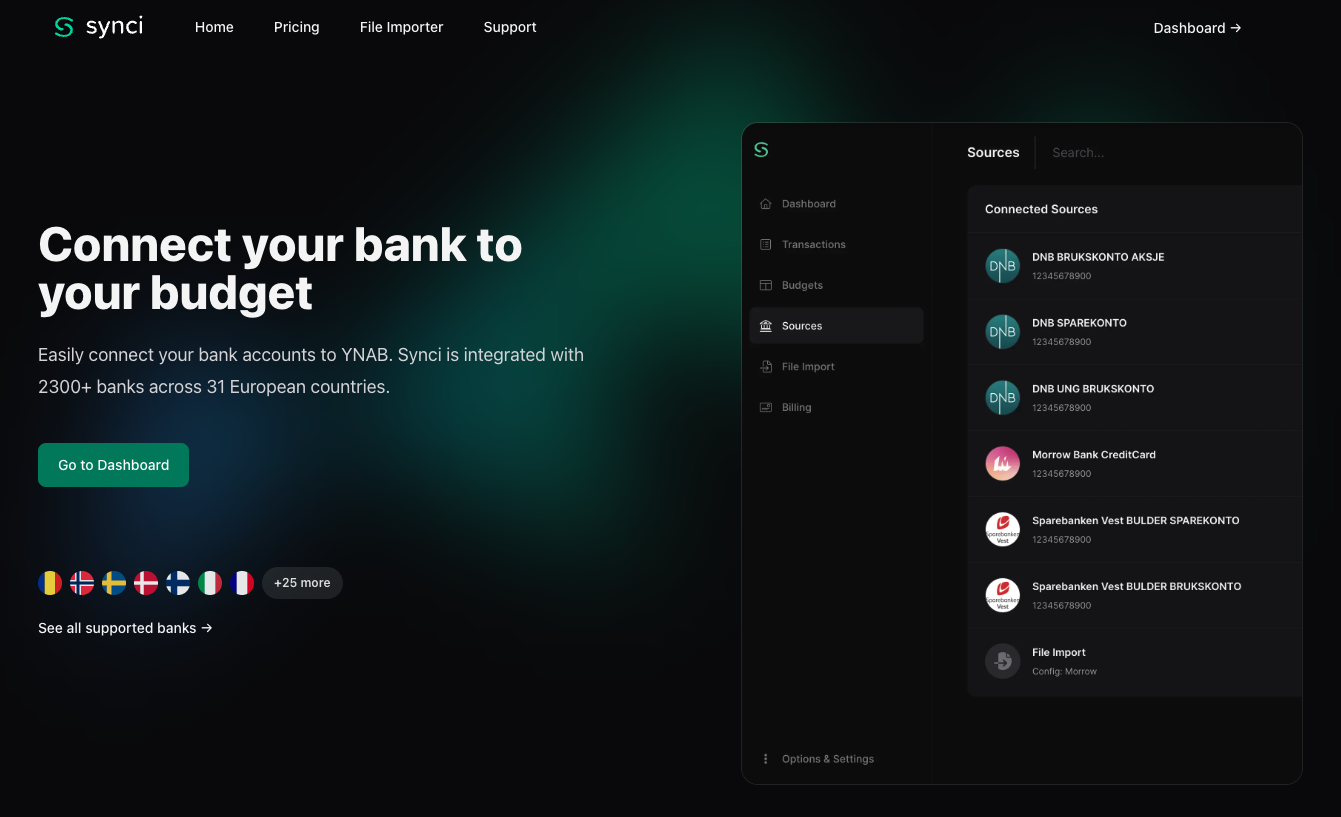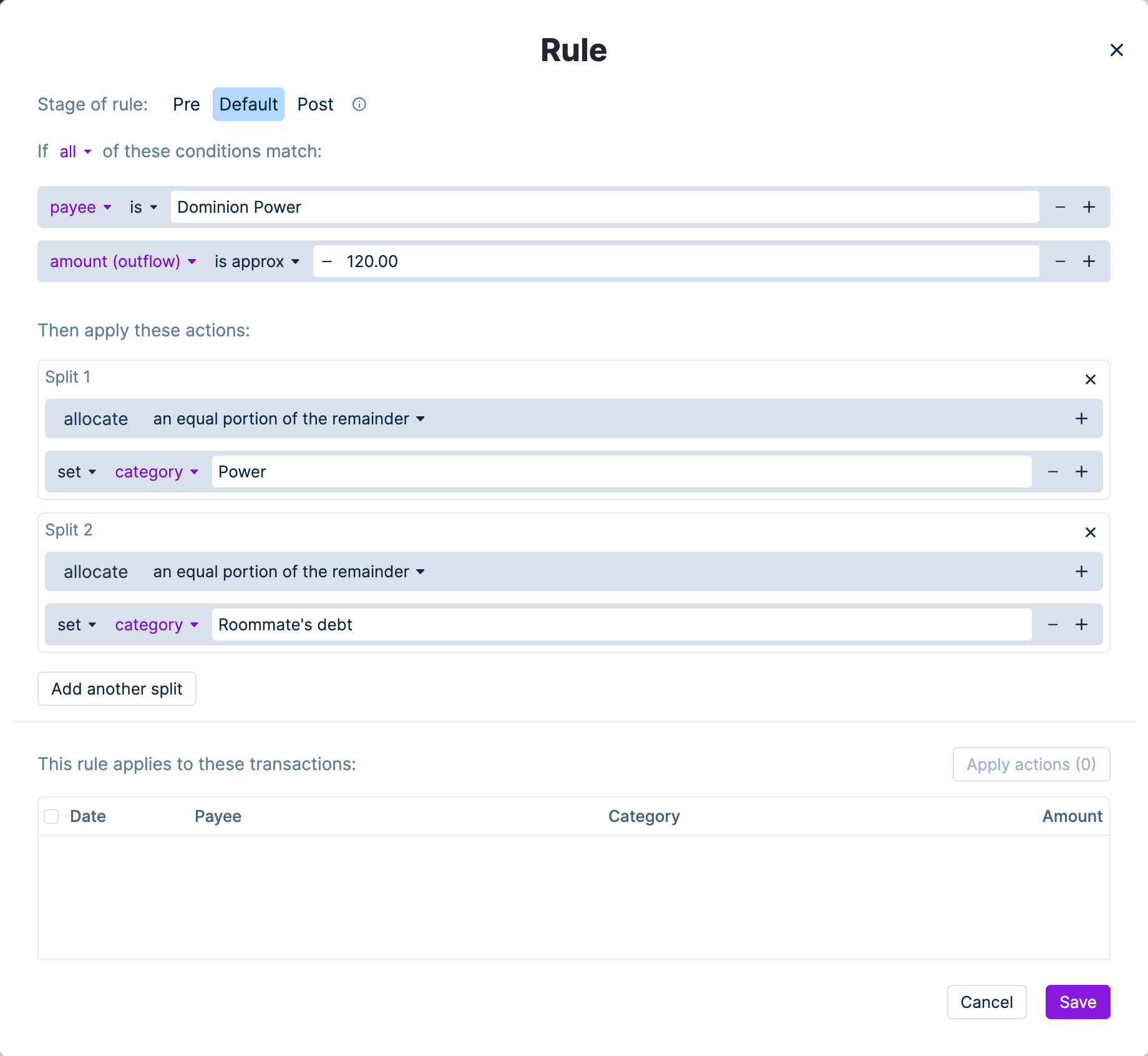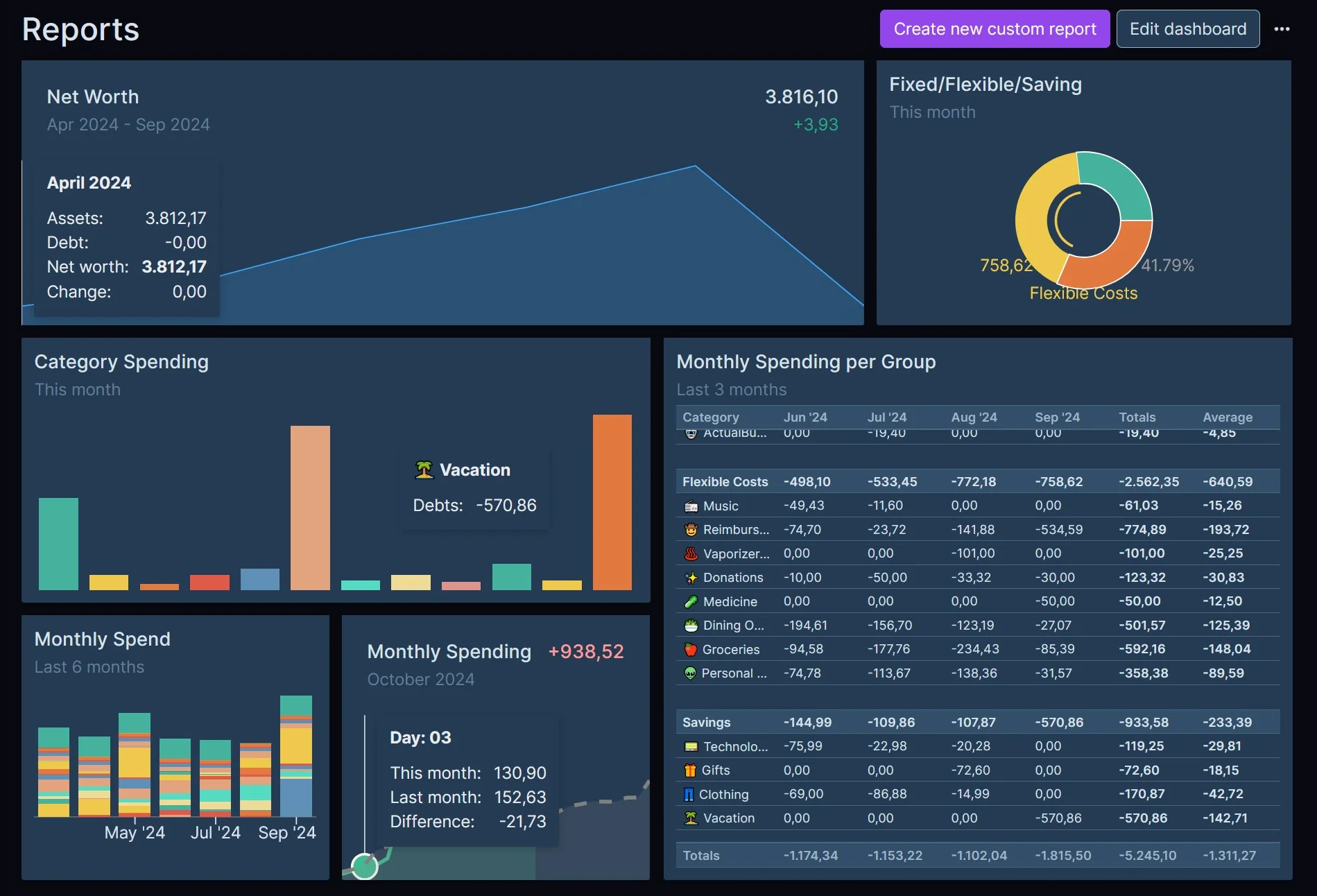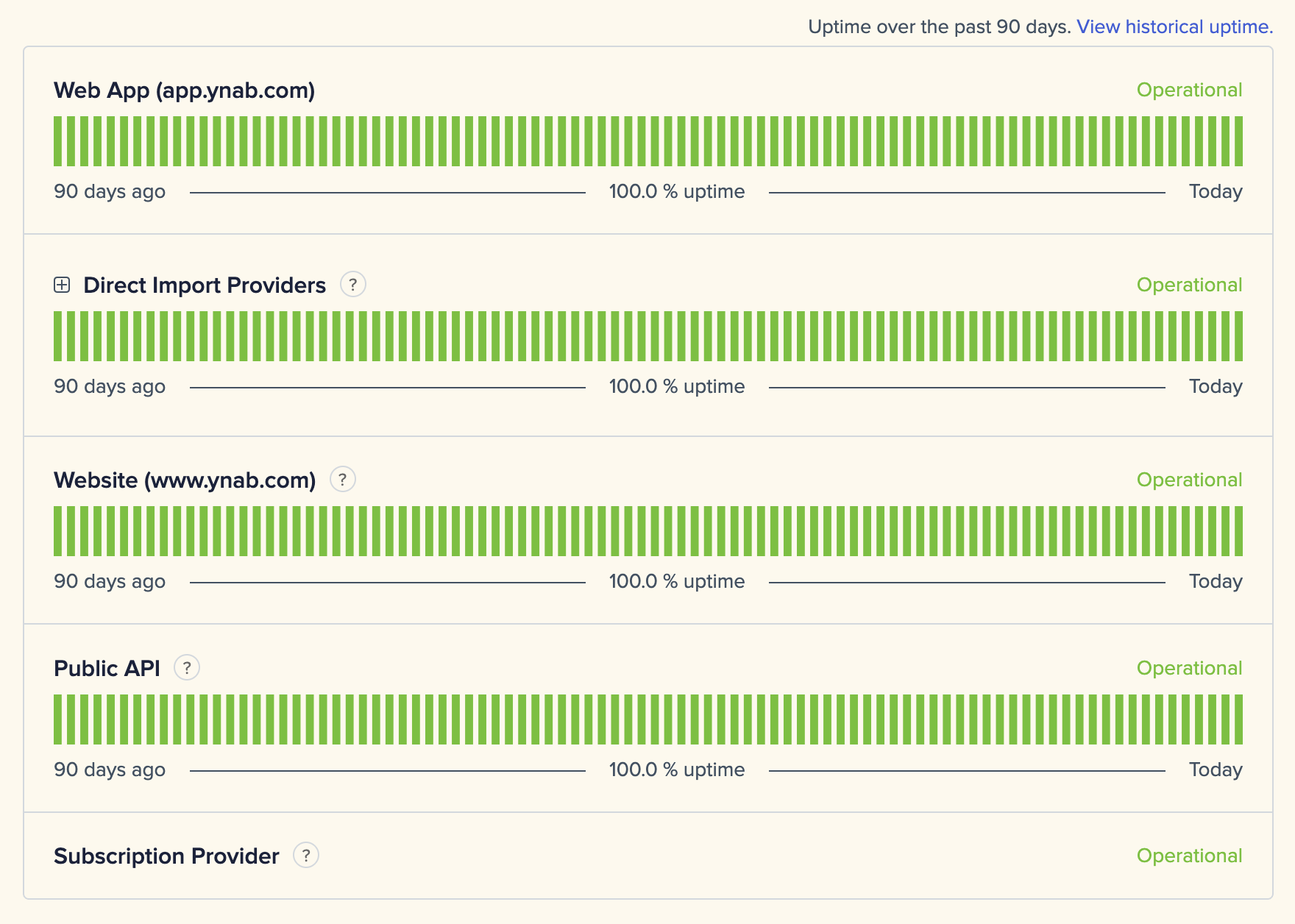Open-source has saved me $150.11 yearly
Yeah, I was paying a $150.11/year subscription for a budgeting app. No, don't take financial advice from me.
In my defense, YNAB (You Need A Budget), the budgeting app I was using was... decent. I heard about it on Reddit, where everyone seemed to like it. They were saying that other budgeting apps follow different principles, which the YNABbers considered harmful. YNAB's main principle is "give each dollar a job". If you don't have that dollar yet, then it's not yours to budget. So don't even think about those $25,000 that you're expecting in 2 months. Spend only what you actually have in your bank account – it's wiser.
This rule made sense to me. Apparently, other evil budgeting apps blatantly violate this sacred rule. And since I wanted to go the wise way, I stuck with YNAB. Looking back, the extent of other budgeting apps' devilishness was probably exaggerated. The competition probably just had this "planning" feature that you didn't have to use.
So yeah, that's how I (let Reddit) take financial decisions (for me).
Escaping the matrix
So what changed?
Well, I was randomly surfing the r/YNAB subreddit for success stories and whatnot, and I read a comment that said "Actual does this better" or something. The comment didn't make sense. I thought it was a grammar error. But it had some replies that seemed to know what OP was talking about.
So I did the only logical thing – I googled r/YNAB actual. And there it was! There was apparently an open-source budgeting app called Actual Budget. Completely free. Feature-rich. And the Reddit hivemind seemed to like this one too!
But wait... Reddit likes both YNAB and Actual Budget?... Do I... Do I have to use my judgement to decide if it's worth making the switch? 😱
Oh well, I was bored anyways. Show me what you've got, Mr. Actual!
I've struck gold!
Actual Budget is "$150.11/year cheaper" than YNAB. So it's worse, right?
...
No! I'd say it's actually better!
To begin with, YNABbers might have been wondering where that $150.11/year price tag is coming from. On YNAB's website, the stated price is $109/year. So did I get scammed out of $41.11 or something?
Yes and no.
No, because I didn't send this money to a Nigerian prince. Yes, because I live in Europe.
For context, YNAB has this nifty feature that lets you connect your bank accounts directly to your budget, so you don't have to manually input each and every single transaction... if you're from the 🇺🇸 US! Europeans are stuck to using the ancient Zen technique of manual data input1.
But wait! YNAB is so big that there are entire businesses specializing in solving its flaws! Presenting... Synci!

For the low-low price of €38/year you can connect 2 accounts to your budget. Do you have 3 accounts you'd like to sync? Then maybe you'd enjoy the Advanced subscription, for just €58/year! They've also got a €96/year subscription for all the Pros out there with up to 10 accounts.
€38/year is roughly $41.11 at the time of this writing. So there it is – $150.11/year2, roughly a month's worth of groceries where I live3.
Of course, Synci integrating with 2300+ European banks is no small feat. You either have to write 2300+ connectors to the different bank APIs or work with one (or more) third parties specialized in doing that. Either way, that sounds costly. So there's no way Actual Budget can do all that for free, right?
The answer to the rhetorical question is indeed affirmative.
Actual Budget let's you use 3 APIs directly for syncing bank transactions: GoCardless (European banks), SimpleFIN Bridge (North American banks), and Pluggy.ai (Brazilian banks). The people at GoCardless are generous enough that they let you sync transactions 50 times per month for free. I do most of my payments through my Revolut bank account. This means that I could sync my transactions daily and I'd still be well within the free tier. Europe is redeemed! 🇪🇺 🇪🇺 🇪🇺
Actual Budget 1 - 0 YNAB. And that's a big 1 – worth $41.11/year!
C'mon YNAB, do something...
Surely YNAB must be doing something right... Right? Something that Actual Budget just didn't have the smarts to do... Something that the 183 YNAB employees cooked for 21 years that just can't be matched by 17 main contributors4 to a lowly open-source project.
YNAB has a mobile app. And Actual Budget has... no mobile app.
This is true. However, there's a but. A big but. A really big one! You can host Actual5 on a server, as a website. A website that you can of course access from any device, be it laptop shaped or glass brick shaped.
But I'll be honest, when I was thinking what about praise to give to YNAB, its mobile app didn't come to mind. Not because it's bad, but because I haven't really been using it. I got in the habit of doing my budget daily, managing the previous day's transactions each morning. So no reason for me to use the app, really. I think I even uninstalled it while I was still using YNAB, because its notifications were annoying me.
But, of course, everyone is different. So, personal experience aside, this feels like the biggest gap that Actual Budget has.
I did however notice another missing feature: Actual Budget doesn't let you set targets for categories. Let's say that you have an annual $150.11 subscription to an online service. Actual isn't able to tell you that you need to save $12.51 monthly in order to afford this payment in one year's time. YNAB will kindly do this mathematical division for you – making it immediately obvious that this is your most expensive monthly subscription.
There are some good news on this front, however. First off, you can easily copy all categories' targets from one month to another. This gets you like 70% of the way there. Secondly, this won't remain missing for long. There's an experimental feature in Actual called Budget Templates that lets you do exactly this (and way more!), which will hopefully get out of the "you might encounter irrecoverable errors if you enable these settings" phase soon.
So I'll update the score to a respectable Actual Budget 1 - 0.2 YNAB. Good job, YNAB!
A geek's paradise
YNAB seeks to be as approachable as possible. They've created almost 1000 videos on their YouTube channel about their tool and budgeting in general. This attitude is reflected in their UI, too. Yes, YNAB has a slight learning curve, but it does its best to strike a balance between functionality and ease of use – just like all great products do. Before trying Actual, YNAB's interface felt to me like the only way a budgeting app could be laid out. It felt simple and effective.
Actual Budget? Well, that's another story! Their functionality vs. ease of use calculus lands squarely on the functionality side of the coin. And that's AMAZING, in my Certified Geek™️ opinion.
Take their Rules feature, for example. Essentially, these are actions that are automatically applied to all matching transactions. Here's how one might look like:

With this rule, a transaction from Dominion Power that's approximately $120.00 is automatically split equally into two categories: Power and Roommate's debt. Isn't that something?
You can get veeery explicit with these rules. Just look at the UI. So, first off, you have Stage of rule. You can set this rule to run before or after all other rules. I don't have a use case for this yet, but the control's existence proves just how much functionality is packed in. Then you set one or more conditions, with AND or OR between them. You can check things like the account, category, notes, amount. For the amount, you can compare it to a value and check if it is, is approx (!!!), is greater than, and so on. And then, of course, you've then got the actions, where you can do pretty much anything you want.
YNAB has no equivalent. So what can I say, Actual Budget... rules? :P
Another amazing Actual feature is Reports. They are essentially widgets that you can fully customize to your own liking. You can add however many you want and they can track whatever you want. I haven't really dove into this, but here's one example I found in a Reddit post:

YNAB can't match Actual Budget here either. YNAB lets you see 4 graphs about your transactions: Spending Breakdown, Spending Trends, Net Worth, and Income v Expense. But that's about it...
Did I also mention that Actual works offline?
Needless to say, Actual Budget is packed to the brim with features. And it's still in active development, with new versions released monthly.
The end
... for YNAB!
Ok, not really. You can still use it. Frankly, I don't know why you'd use it anymore, but you definitely can – I've checked and YNAB is still up:

As for Actual Budget, if this post made you curious, you can check out their online budget demo. And, of course, you can download it here.
So there it is, my overly enthusiastic review of a budgeting app! What can I say, Actual Budget really puts the (WH)Y in YNAB.
-
It was pointed out to me that YNAB can actually sync with banks from 17 European countries. Frankly, I didn't know that. I live in one of the other 27 European countries. So a while ago, I tried setting up bank synchronization in YNAB. I looked up my banks in their tool, but none was supported. Disappointed, I eventually went searching for a third-party solution.
So everything I wrote in here still holds true for me, but keep in mind that I'm just... a walking edge-case that lives in the poorer side of Europe (looking at the list of countries that YNAB supports and does not support). ↩
-
Thank God for those $0.11! "Open-source has saved me $150 yearly" sounds way less convincing, I don't know. ↩
-
No reason to be jealous, we also get paid less. ↩
-
I've arbitrarily defined "main contributor" as having contributed to at least 1% of the code changes. Actual Budget has 293 smart and beautiful contributors, in total. ↩
-
I'll say it like the cool kids! ↩